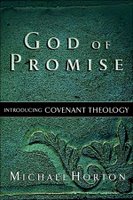Originally I intended to write only those two posts on the subject of standard discussion stoppers. However, a couple of days ago I saw another discussion bomb dropped and I couldn't resist adding one more post to the ridiculous rebuttal collection. This recent argument is one I'd forgotten, probably because until a couple of days ago, I hadn't seen it used for a long time; and that's a good thing, because, like the others, it's a rebuttal that's best avoided.
What is it? It goes something like this: "The God I worship would not _______." You can fill in the blank with whatever it is the other person has been saying God does. Another version of this same objection is, "I could not worship a God who would _______." These remarks are meant to show that whatever the other person has been saying about God is completely off-base because a God like that would be unworthy of worship.
First, let me point out that there are similar phrases to these that can be used legitimately. It is perfectly fine to say, "God, as revealed in scripture, would not _______," as long as you have the clear teaching of scripture to back up your statement. There are indeed many things that God, as revealed to us in scripture, would not do. He won't (and can't) lie, he won't fail to fulfill a promise, and he won't treat someone unjustly. We've been told these things and we can count on them. Banking on these
would-nots is letting God define his character for us and trusting God as he defines himself.
Looking again at the original statement, the problem with saying, "I could not worship a God who would..." is that this particular statement places the person making it in a position of judgment of God, since what is really being said is "If God does one thing, then I could worship him; but if he does another, then I could not." Standing in judgment of God is a position that no human being has a right to be in, for God is due our worship, whether we like his actions or not. It's a position no human being has the ability to be in, since we, as his creatures, by definition have less understanding of his intentions and actions than he does.
What's the real difference between the two statements? Boil down the statement "God, as revealed in scripture, would not......", and at the bottom of the pot you find "He's the Judge of the earth, therefore what he does is right." Boil down "I could not worship a God who would...", and you get "I have a right to judge the Judge of the earth."
People arguing against the existence of God often use a form of this objectionable objection. You've seen it: "If there were a God, he would never let _______ happen, and since ______ happens, there is no God; and just in case there is a God, and he lets _______ happen, then there's no way I would worship him." We might expect that of unbelievers, but people professing faith in God also make statements like that: "The God I worship would never do some of those things the Old Testament scriptures say he did; therefore, I don't think you can take those stories too literally."
Here's a paraphrase of the version of this argument I saw most recently, and the one that prompted this post: "Well, yes, the text says that certain people gathered together to do whatever God's plan decided beforehand would happen, but the God I worship would not decide beforehand that certain people would sin. So God's plan had to involve only the events that occured, and not the particular people to carry it out." Let's ignore the other details of this statement--like the question of how it is possible to plan certain events without planning for certain people to carry them out--and just look at the phrase "the God I worship would not...." How does this person know that? Is it because he is only willing to worship the sort of God who would not do this? Is it that he has his own idea of what God could rightly do, and that's the sort of God he is able to worship? That's what it sounds like to me. Of course, it is possible he means to say that the God he sees revealed in scripture, and thus the God he worships, would not decide beforehand that certain people would sin; but he doesn't say that, and he doesn't give any texts from scripture to back this up. His statement, as it stands, makes it seem that the meaning of the texts of scripture must be defined by his own idea of the kind of God he worships, rather than the kind of God it is he worships being defined by the texts of scripture.
While searching for some other info this week, I came across a link to
John Sanders' entry in Wikipedia. (John Sanders is a well-known open theist and an acquaintance of mine.) Here's the story, as found in the entry, of the events that pushed Sanders toward open theism.
In The God Who Risks, Sanders tells the story of how he came to be an open theist. The watershed moment was when he, a photographer for the local newspaper, stopped at the scene of a car accident to take some pictures. A semi had hit a motorcyclist, whose body was crushed beneath its tires. As it turned out, the motorcyclist was Sanders’ brother Dick. Sanders went home, sat down at his bedside, and prayed, “God, why did you kill my brother?” His anger at God became the impetus for over twenty years of searching for answers. Over time, he became convinced that his anger was not directed toward God, but toward “a particular model of God”—a God who is the “ultimate cosmic explanation for each and every thing.” Open theists like Clark Pinnock, William Hasker, and Terrence provided Sanders with an alternative model that seemed to absolve God of responsibility.
In other words, John Sanders couldn't worship a God who knew his brother would be killed and didn't prevent it, so he found an alternative model of God--one different from what believers have historically understood to be the God revealed to us in scripture. And yes, I know that Sanders argues that the open theist model of God is the one revealed in scripture, but that's not the point. The point is that it was not scripture that pushed him to search for a different model of God; but rather, he was urged on because he
could not worship (or was angry with) the sort of God who could have prevented his brother's accident, but didn't.
Honestly, I don't care what sort of God someone finds they can or cannot worship--and no one else should, either--at least as a statement meant to support the rightness of their view of God, or the wrongness of another view of God. Knowing the kind of God someone can or cannot worship tells us nothing at all about the God who is. We know this because Romans 1 tells us that people, as a rule, do not like to worship the kind of God that the true God is, but instead, prefer to adjust their concept of God from the God-who-is to a kind of god they find easier to worship. Someone's statement, then, about what sort of God they could (or couldn't) worship is worthless for determining what the real God is like and what he does.
As a related aside, a footnote to the Wikipedia article on John Sanders gives us a more recent quote from him:
In the past few years it has become clear to me that presentism itself does not contribute much by way of help in dealing with the question of evil. It seems to me now that early statements of openness overstated its value, for it is correct that, according to openness, God would ‘see’ that something dreadful was going to happen and God has the power to prevent it, so why does God not prevent it?
In a nutshell, the open theistic model of God doesn't solve the problem John Sanders had with the traditional view of God. Even the open theistic model of God makes him the sort of God that Sanders was angry with over the death of his brother. You could say that even this model of God is the sort of God that Sanders, at least in the past
, could not worship. So Sanders ends up back where he started, with a choice to either worship a God who could have prevented his brother's accident, but decided not to; or to develop a new model of God, maybe one who doesn't have the power to prevent certain things, for instance.
And some open theists have gone in that direction lately in order to avoid having to say that God could have prevented natural disasters like Hurricane Katrina. This shows the problem with determining what sort of God we think we can worship and then going from there. We tend naturally to develop views of God that are less and less like the God who is, and more and more like what we are; and Romans 1 (again) will back that statement up.
So we've come round to this: Wise people don't use the phrase "I could not worship a God who would...."--or any of it's variations--in an argument. Why not? First, because no one should find it a convincing argument. What sort of God someone could worship isn't relevant to any argument about what sort of God there is. And second, because thinking that way--going in that direction--tends to lead people to bad places, since our own judgment in this area is warped because of the sort of people we are.




















